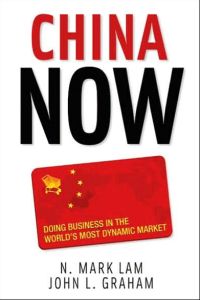Join getAbstract to access the summary!

Join getAbstract to access the summary!
N. Mark Lam and John L. Graham
China Now
Doing Business in the World’s Most Dynamic Market
McGraw-Hill, 2006
What's inside?
Breezy, encyclopedic guide to business in China – what’s wrong with the conventional wisdom, and what’s right.
Recommendation
N. Mark Lam and John L. Graham offer an interesting, informed overview of doing business in China. The authors did some of their research on Wikipedia (a source they honestly credit), and some in popular business magazines and books, but the source that comes through is their experience. They do a good job of pulling all their material together. They begin with a summary of history, followed by advice on negotiating with background material on American and Chinese attitudes. This guidance is useful, though much of it has become familiar elsewhere. Other sections cover intellectual-property protection (or the lack thereof) and the intriguing nature of competitive factions in “Greater China.” Some of the opinions here may be chancy (i.e. the notion that if the US imposed trade sanctions, China would sell its US Treasury holdings), however, getAbstract sees the factual material as a useful background for doing business in China.
Summary
About the Authors
N. Mark Lam is an attorney and business adviser specializing in East-West negotiations. John L. Graham teaches international business at the Paul Merage School of Business at the University of California in Irvine.
















Comment on this summary